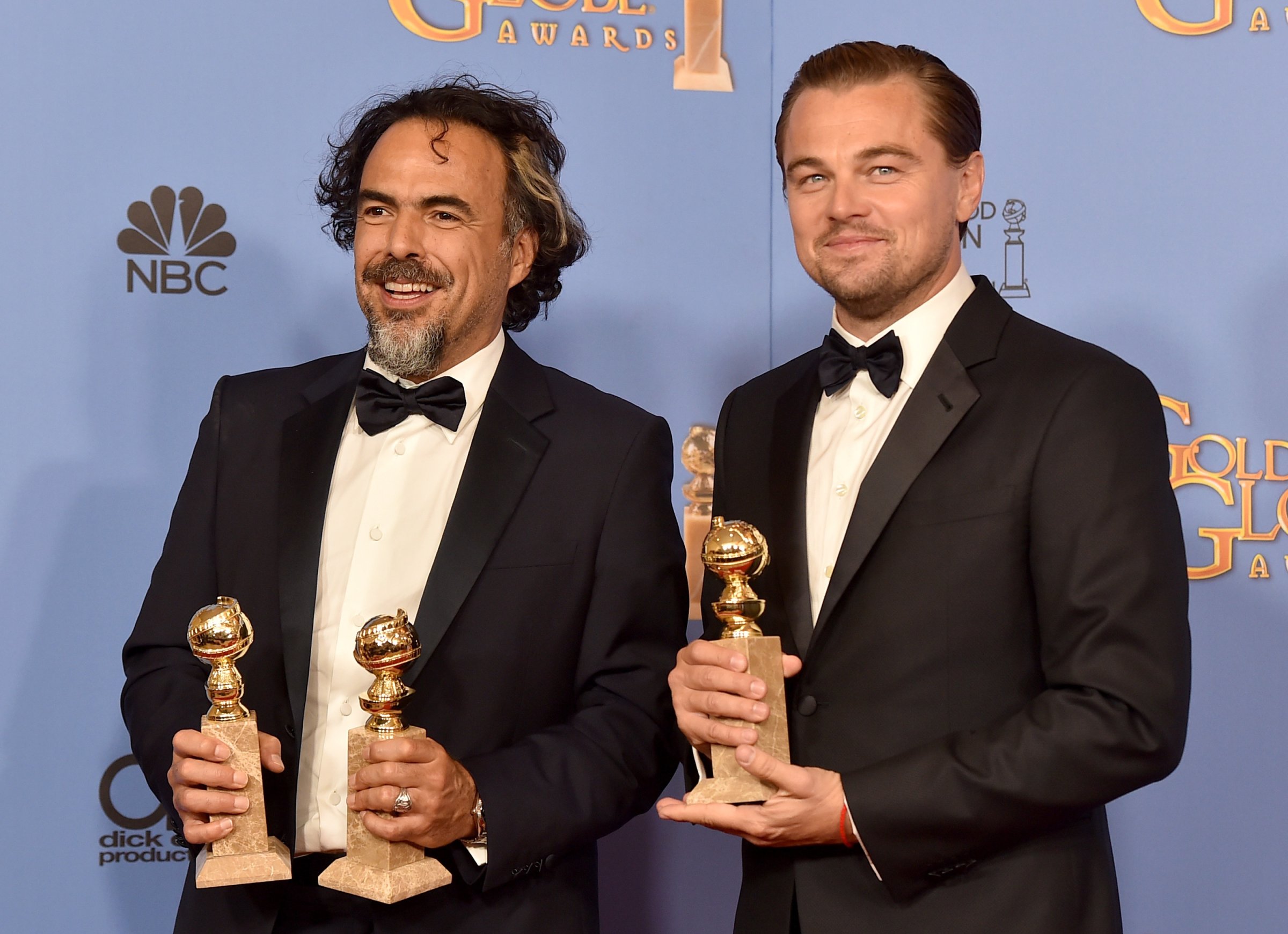
Most critics I know hate predicting Oscar winners, if only because it seems futile to try to read the minds of a bunch of people who are not us. It may be yet another exercise in futility to try to guess whether Oscar voters will be influenced at all by the awards the Hollywood Foreign Press Association handed out at Sunday’s Golden Globes ceremony. After all, we’re talking about two distinct covens, one a mysterious set of Hollywood journalists who report on entertainment for media outlets outside the United States, the other a mysterious set of professionals who work in the movie industry. The Hollywood Foreign Press Association has about 90 members; the number of voting members of the Academy of Motion Picture Arts and Sciences is generally said to be around 6,000—which means a more varied and disparate set of likes and dislikes can always come into play.
But the Golden Globes push certain performances and pictures into the spotlight—even if those pictures don’t include Spotlight—and that at least gives the appearance of opening up the awards field. The surprises on Sunday night included an award for Kate Winslet, for her supporting role in Danny Boyle’s biopic Steve Jobs. Winslet’s name hasn’t simmered to the surface in any of the major year-end critics’ awards, which means nothing at all—though you could read it as a mild indicator that, in the crowded field of fine performances given by women in 2015, she was possibly overlooked because no one seemed to care for the movie all that much. But so what? The HFPA let its freak flag fly in choosing her, so good for them. Similarly, Steve Jobs screenwriter Aaron Sorkin’s Golden Globe win suggests that someone has been paying attention to a movie that seems to have been conveniently forgotten by almost everyone else. Or maybe, in his case, it’s just an award for the most words.
The HFPA seems to have shoehorned The Martian into the Best Motion Picture, Musical or Comedy category solely to create extra winning slots for Matt Damon and Ridley Scott, who might not have had a chance among the Best Motion Picture, Drama contenders. Predictably, they won. Less predictable was Brie Larson’s Best Actress, Drama award for Room—not because it isn’t a fine performance, but because the buzz around it has been quieter than that around some of the other nominees, chiefly perennial Oscar nominee Cate Blanchett (for Carol) and Saoirse Ronan for her role in Brooklyn, a performance that just about everybody seems to like. Larson’s prize puts a shiny glow around her, which could seep into the brains of Oscar voters.
Perhaps most surprising is that Tom McCarthy’s Spotlight, seen by many Oscar prognosticators as a Best Picture frontrunner, took not a single award on Sunday. But The Revenant, in which Leonardo DiCaprio plays a trappers’ guide left for dead in the bitter-cold wilderness of 1820s Wyoming, won three prizes: Best Motion Picture, Drama, Best Director (Alejandro González Iñárritu), and, for DiCaprio, Best Actor, Drama. The Revenant’s success at the Golden Globes could either help the film gain momentum with Oscar voters, or push them more definitively toward Spotlight, lest it be left behind in the sad no-awards orphanage. Meanwhile, DiCaprio may end up winning his first Oscar, thanks to all that persuasively realistic facial hair and convincing consumption of buffalo liver. Then again, it’s worth noting that DiCaprio also won a Best Actor Golden Globe (in the Comedy or Musical subcategory) for The Wolf of Wall Street in 2014, while Oscar voters that year were less impressed.
No one at the Golden Globes ceremony seemed surprised when Sylvester Stallone won Best Supporting Actor for reprising his Rocky Balboa role in Ryan Coogler’s superb surprise hit Creed. He received a standing ovation; the room seemed to be filled with happy faces. It probably just feels good to give an award to an actor who’s made such a pleasing comeback. Maybe the Academy will feel that way too. And when Quentin Tarantino accepted the Best Original Score award for Ennio Morricone, who composed the genuinely stellar music for The Hateful Eight, he noted that Morricone has never won an award in the States for his work on any single film. (He has been nominated for an Oscar five times, and he received an honorary Oscar in 2007 for his body of work.) Among all of the people who ought to have won an Academy Award by now and haven’t, Morricone must be somewhere near the top. Maybe, come Feb. 28, he’ll no longer be hiding in plain sight.
More Must-Reads from TIME
- Donald Trump Is TIME's 2024 Person of the Year
- Why We Chose Trump as Person of the Year
- Is Intermittent Fasting Good or Bad for You?
- The 100 Must-Read Books of 2024
- The 20 Best Christmas TV Episodes
- Column: If Optimism Feels Ridiculous Now, Try Hope
- The Future of Climate Action Is Trade Policy
- Merle Bombardieri Is Helping People Make the Baby Decision
Contact us at letters@time.com